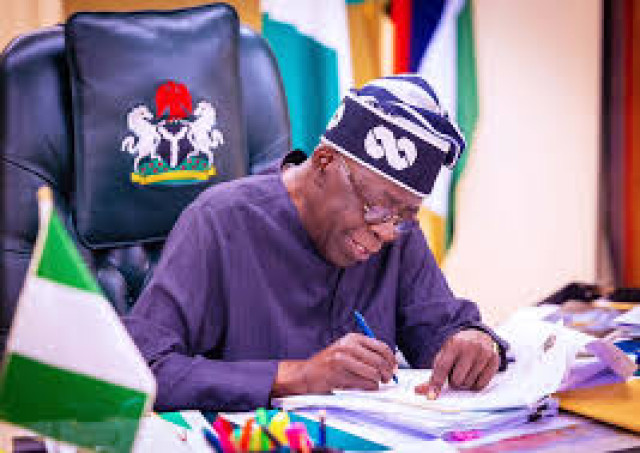President Bola Tinubu commended the victor of the nullified June 12, 1993, presidential election, Chief Moshood Abiola, as well as other democracy heroes such as General Shehu Musa Yar’Adua and Pa Alfred Rewane in his Democracy Day address.
He also honored Chief Anthony Enahoro, Chief Abraham Adesanya, Commodore Dan Suleiman, Chief Arthur Nwankwo, Chief Chukwuemeka Ezeife, Admiral Ndubuisi Kanu, Chief Frank Kokori, and Chief Bola Ige, along with other notable Nigerians who made significant sacrifices for the advancement of democracy in the nation.
The President cautioned Nigerians to be vigilant against individuals who may seek to undermine the current democratic system.
He recognized the economic difficulties in the nation and affirmed his dedication to aiding the people.
He stated, "31 years ago today, we embarked on our journey towards becoming a genuine and lasting democratic society.
This journey was challenging and perilous. Over the next six years, we battled and persevered for our inherent rights as individuals placed on this planet by the divine will of our Maker."
"We have lost many great heroes and heroines in our struggle for democracy. The winner of the June 12, 1993, presidential election, Chief MKO Abiola, along with his wife Kudirat, General Shehu Musa Yar’Adua, and Pa Alfred Rewane, made the ultimate sacrifice for the betterment of our nation.
We must honor the memories of other notable figures such as Chief Anthony Enahoro, Chief Abraham Adesanya, Commodore Dan Suleiman, Chief Arthur Nwankwo, and many more who have passed on.
The President also highlighted the sacrifices of General Alani Akinrinade, Prof Bolaji Akinyemi, Prof Wole Soyinka, Chief Ralph Obioha, Chief Cornelius Adebayo, and others who endured years of exile.
He also mentioned the efforts of pro-democracy activists at home and abroad, including Olisa Agbakoba, Femi Falana, Abdul Oroh, Senator Shehu Sani, Governor Uba Sani, Chief Olu Falae, Chief Ayo Adebanjo, and Chief Ayo Opadokun.
Tinubu also praised the role of the media and the unwavering spirit of Nigerian journalists in the fight against military dictatorship."
Tinubu cautioned Nigerians to be cautious of individuals who may try to take advantage of the current economic difficulties to undermine the country's democracy.
He emphasized that despite the complexities of democracy, it remains the best form of governance in the long term.
He also warned that there are those who will seek to exploit the current challenges to undermine or dismantle democracy for their own selfish interests.
As a beneficiary of the democratic struggle, the President expressed his commitment to upholding and preserving this valuable form of governance.
He pledged to take all necessary measures to solidify democracy as a way of life and protect the rights and freedoms of Nigerian citizens.
The President also urged Nigerians to recommit themselves to achieving economic democracy for the nation.
He stated that the bill would incorporate the agreed terms into the country's legislation for the next five years or less.
He emphasized that the government had engaged in sincere negotiations with organized labor to establish a new national minimum wage, and would soon present a bill to the National Assembly to make the agreement legally binding.
Despite the threat of a national strike from labor, the government chose to collaborate rather than oppress or confront the workers.
No one was intimidated or arrested; instead, the labor leaders were invited to engage in constructive dialogue and negotiation.
The President highlighted that reasoned discussions and principled compromises are essential in a democracy, and he pledged to approach his policies and interactions with the various sectors of the economy in this manner.
He reassured Nigerians of his impartial commitment to ensuring that no one in the country is oppressed.




















